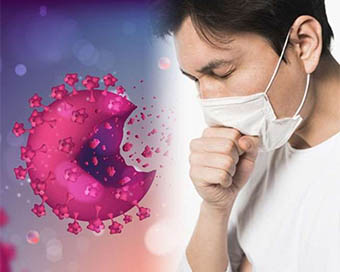Gallery
 PM Modi visit USA
PM Modi visit USA Only the mirror in my washroom and phone gallery see the crazy me : Sara Khan
Only the mirror in my washroom and phone gallery see the crazy me : Sara Khan Karnataka rain fury: Photos of flooded streets, uprooted trees
Karnataka rain fury: Photos of flooded streets, uprooted trees Cannes 2022: Deepika Padukone stuns at the French Riviera in Sabyasachi outfit
Cannes 2022: Deepika Padukone stuns at the French Riviera in Sabyasachi outfit Ranbir Kapoor And Alia Bhatt's Wedding Pics - Sealed With A Kiss
Ranbir Kapoor And Alia Bhatt's Wedding Pics - Sealed With A Kiss Oscars 2022: Every Academy Award Winner
Oscars 2022: Every Academy Award Winner Shane Warne (1969-2022): Australian cricket legend's life in pictures
Shane Warne (1969-2022): Australian cricket legend's life in pictures Photos: What Russia's invasion of Ukraine looks like on the ground
Photos: What Russia's invasion of Ukraine looks like on the ground Lata Mangeshkar (1929-2022): A pictorial tribute to the 'Nightingale of India'
Lata Mangeshkar (1929-2022): A pictorial tribute to the 'Nightingale of India' PM Modi unveils 216-feet tall Statue of Equality in Hyderabad (PHOTOS)
PM Modi unveils 216-feet tall Statue of Equality in Hyderabad (PHOTOS)The Badminton Association of India (BAI) has announced a 14-member-strong India squad for
- Men’s Sr Hockey Nationals to be played in division-based format from April 4
- Mensik denies Djokovic 100th title in Miami final
- KIPG: Son of a vegetable vendor, Bihar’s Jhandu Kumar eyes Worlds, 2028 Paralympics
- Hardik Singh credits hard work and team unity for receiving HI Midfielder of the Year award
- Djokovic, Alcaraz land in same half of Miami draw
Study identifies longer-term symptoms in coronavirus patients Last Updated : 11 Aug 2020 03:36:06 AM IST 
File Photo Researchers, including one of Indian-origin, have identified a pattern of longer-term symptoms likely to be experienced by people who were hospitalised with the COVID-19 infection.
They include fatigue, breathlessness, psychological distress - including problems with concentration and memory - and a general decline in the quality of life.Some patients, particularly those who had been in intensive care, had symptoms associated with cases of PTSD (post-traumatic stress disorder), according to the study, published in the Journal of Medical Virology."Covid-19 is a new illness and we have very little information on longer-term problems in individuals after discharge from the hospital," said study author Manoj Sivan from the University of Leeds in the UK.For the findings, the research team followed 100 people recovering from Covid-19, four-to-eight weeks after being discharged from hospital in Leeds.The Covid-19 survivors were divided into two groups: those who had become critically ill and needed intensive care - 32 people were in this category; and those who were treated in a ward without needing intensive care - 68 people were in this category.Patients were contacted by a member of the hospital's rehabilitation team and asked a series of questions about their recovery and symptoms they were still experiencing. The findings showed that the most prevalent symptom was fatigue.More than 60 per cent of the people who had been treated in a ward reported fatigue, and one-third of them described it as moderate or severe. For patients who had been in intensive care, 72 per cent reported fatigue. Of them, more than half said it was moderate or severe.The second most common symptom was breathlessness. People in both groups said they had feelings of breathlessness which had not existed before they contracted COVID-19. This was higher in the group that had been the most severely ill, the intensive care group versus those who had been treated in a ward - 65.6 per cent versus 42.6 per cent. The third most prevalent symptoms were neuropsychological.The research survey found that almost one-quarter of the people who had been in a ward and just under half of the people who had been in intensive care had some of the symptoms of PTSD. More than two-thirds (68.8 per cent) of the patients in the intensive care group and just under half (45.6 per cent) of the other group said their overall quality of life had deteriorated."The emerging evidence is that for some, the road to recovery may take months and it is vital specialist rehabilitation is on hand to support them," Sivan noted.IANS London For Latest Updates Please-
Join us on
Follow us on








172.31.16.186







